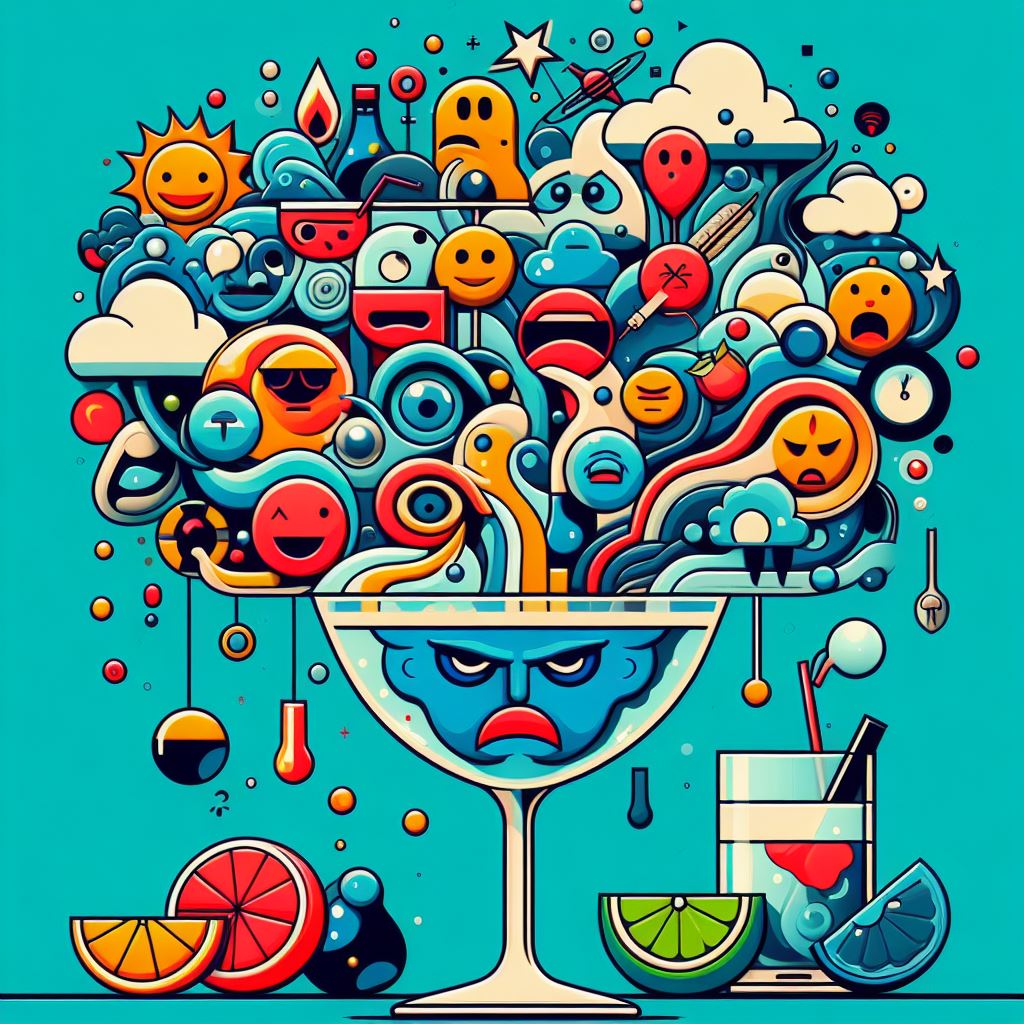
We rarely experience one singular emotion, but often a cocktail of different emotions at the same time. Embracing the emotional complexity of life is key to becoming more emotionally intelligent.
According to the famous psychologist Paul Ekman, we have 6 basic emotions that are universal across different cultures: anger, fear, disgust, joy, sadness, and surprise.
But of course, our emotional world is much more complex than these basic emotions.
We also experience social emotions like embarrassment, guilt, shame, jealousy, envy, empathy, and pride. And there are countless other emotions like boredom, satisfaction, amusement, contempt, disappointment, etc.
Psychologists have come up with many different ways to classify emotions but none of them are completely 100% correct. It all depends on where we want to draw the line between one emotion and another, and that can be very complicated.
Even when we analyze one basic emotion, we notice they come in many different forms depending on its intensity, duration, and context.
For example, Ekman often considers emotions as families that have a wide-range of different expressions. When analyzing the emotion “anger,” him and his team discovered over 60 different expressions of “anger.”
You can probably think of different experiences of anger in your own life. Sometimes your anger is more subtle (and mixed with frustration or disappointment), while other times your anger is red-hot and seething (and mixed with contempt or even hatred).
In truth, every conscious experience has its own unique emotional flavor to it. One could say we have as many emotions as we do different experiences.
Accepting the emotional complexity of life is very important. It gives us a clearer idea of how our minds work, and it teaches us to be more open to the wide-range of emotional experiences that we are capable of.
Accepting Emotional Complexity
We rarely experience one singular emotion, but often a cocktail of different emotions at the same time.
For example, say you’re getting ready for a big event in your life: starting a new job, getting married, or moving to a new place.
You’ll likely feel a wide-range of different emotions simultaneously: a part of you is excited, a part of you is nervous, a part of you is hopeful, a part of you is fearful.
We can experience all of these emotions at the same time, and there’s nothing that is necessarily contradictory about it. We are complicated beings and we are capable of feeling multiple emotions at once.
Accepting this emotional complexity is key to self-awareness and emotional intelligence.
This is especially true when we’ve gone through an intense emotional experience in our lives that seems to stay with us for a long period of time, such as the death of a loved one, the break up of a long-term relationship, or a traumatic experience that has happened to us.
These intense negative experiences can stick with us for months, years, or even an entire lifetime. But we learn to live with them, and we learn to experience positive emotions again even when these negative experiences are always lingering in the background.
This quote by the American poet Mark Doty is a perfect depiction of this idea:
- “Not that grief vanishes – far from it – but that it begins in time to coexist with pleasure; sorrow sits right beside the rediscovery of what is to be cherished in experience. Just when you think you’re done.”
This line immediately struck me because it recognizes the emotional complexity of living. Even after strong “negative” events, we learn to live with that little bit of sadness, grief, etc.
Positive emotions and negative emotions can co-exist in your mind at the same time.
Sometimes moving on from a negative experience in our lives isn’t about completely overcoming that feeling, or replacing it with another feeling, but learning to let it be while still engaging with the world and letting ourselves feel new feelings along with it.
While it can be healthy to label your emotions to accept them and let them go, sometimes there is too much emotional complexity to adequately give our emotions a label.
Sometimes you don’t even know how to describe how you feel – and that’s okay too. Just feel it. Embrace it. Express it artistically (through music, poetry, or painting). Channel it into something creative.
Overall, “emotional complexity” is an important aspect of our psychology. When you stop trying to feel “pure happiness” or “pure joy,” and you learn to accept the variety of emotional experiences you are capable of in any given moment, then you can become a much more emotionally intelligent person.
Enter your email to stay updated on new articles in self improvement:
